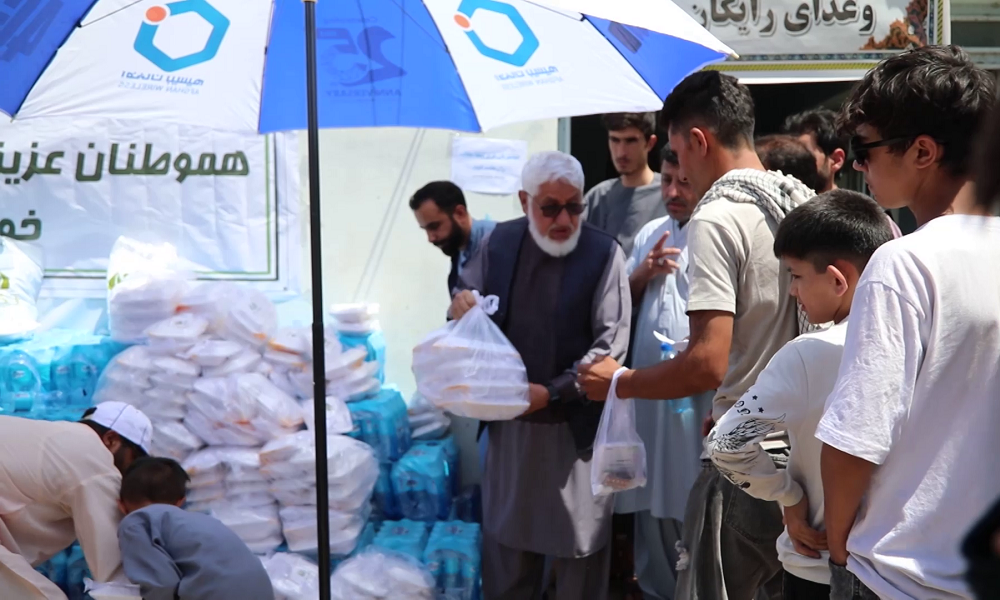
The Bayat Foundation has significantly expanded its humanitarian assistance for Afghan returnees arriving through major western border crossings, including Islam Qala in Herat province and the Silk Bridge in Nimroz.
The foundation’s efforts come amid a growing influx of deported and returning refugees from neighboring Iran.
Foundation officials say their activities now include the distribution of food packages, provision of essential medical services, and the organized transportation of families from temporary shelters to their home provinces.
“Currently, we are at the Mawlana camp in Herat, where we plan to transfer a number of migrants to Kabul on behalf of the Bayat Foundation,” said Haji Mohammad Ismail Shah Samand, deputy head of the Foundation.
The foundation is coordinating the daily transfer of hundreds of returnees from Herat city to various provinces, with a focus on easing overcrowding in temporary shelters and assisting families in reaching their final destinations.
Many returnees have expressed gratitude for the assistance provided, particularly at a time of acute humanitarian need.
“We are very happy with the Bayat Charity Foundation for helping us,” said Matin, a returnee. “They arranged vehicles, food—everything is abundant—and they are taking us to our destination.”
Another returnee, Salim Ahmadi, added: “I thank them for the assistance they have provided to us.”
Civil society groups and volunteers working at the Islam Qala crossing noted that the Bayat Foundation was playing a key role in responding to the humanitarian crisis. They noted that food and basic supplies are being distributed daily, but emphasized the need for greater support in transportation logistics.
Qadus Khatibi, a civil society activist, said: “In my opinion, when it comes to providing services for travelers and migrants, transportation is very important.”
Healthcare services have also been mobilized to meet the needs of the returnees. Fahim Yousufi, head of the Herat Medical and Pharmaceutical Services Union, said: “We have all kinds of medicine to serve patients, including gynecology and pediatric departments, which are available to serve migrants.”
The expansion of aid efforts comes amid a mass return of Afghan nationals, particularly from Iran, where government crackdowns on undocumented migrants have led to a surge in deportations.
According to officials in Kabul, more than 500,000 Afghan migrants have returned from Iran in the past month alone, many of them forcibly deported.
The figure, reported by Deputy Prime Minister Abdul Salam Hanafi earlier this month, highlights the intensifying pressure on Afghanistan’s fragile infrastructure and social services.
According to the International Organization for Migration (IOM), over 250,000 Afghans returned from Iran in June alone, many of them forcibly expelled with little notice or preparation.
In response, the Bayat Foundation launched its latest round of emergency support two weeks ago. Its current operations span Islam Qala border, Silk Bridge in Nimroz, and Herat city center, and have so far reached thousands of vulnerable families.
While civil society groups have praised the foundation’s efforts, they are also calling on the private sector and business community to step up and play a more active role in supporting returnees—especially in facilitating safe and dignified transportation to their home provinces.
